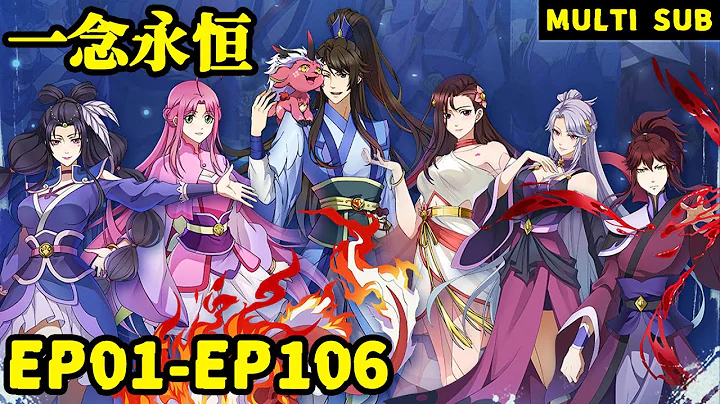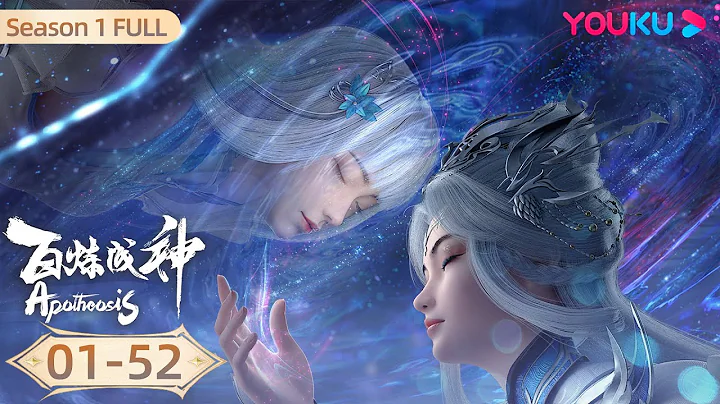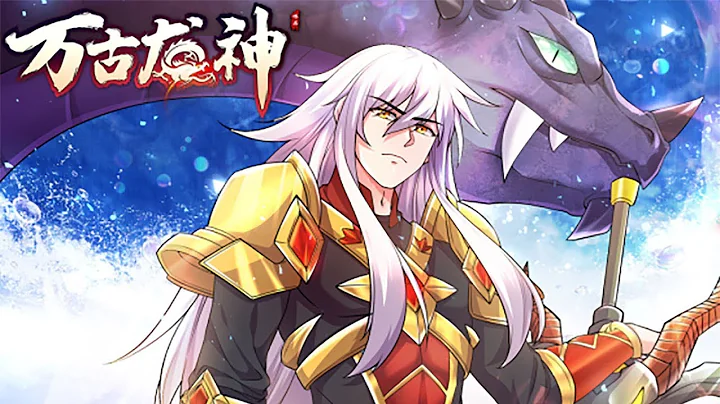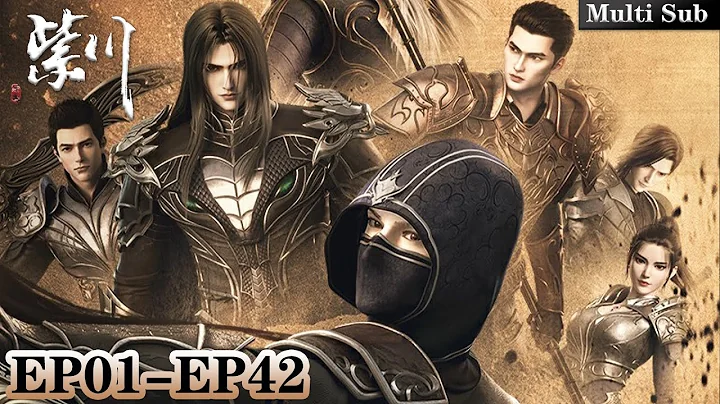In December of the 16th year of Jian'an (211) , Cao Cao returned to Yecheng , leaving Xia Houyuan to guard Chang'an.
In the first month of 212, Cao Cao returned to Yecheng. Emperor Xian specially approved Cao Cao for "visiting unknown people and going to the temple with swords and shoes", just like the story of Xiao He. "
After that, Cao Cao gradually started the process of usurping the Han Dynasty. He wanted to become the Duke of the country and add the title of Jiuxi. Wait, this is the highest courtesy to a minister).
Western Han DynastyThe man who added Jiuxi did what everyone knew in the end.
The second in commandXunyu had to come forward, Xunyu thought: "(Cao Gong ) The purpose of the righteous army is to conquer the Ning Kingdom, with loyalty and sincerity, and to defend the truth of concessions; a gentleman loves others with virtue, and it is not appropriate to do this.”
Cao Cao’s “heart cannot be at peace”, why? He always thought that the most important partnership after raising the army was People are on his side.
And Cao Cao has been trying to win over Xun Yu:
In 204, when Cao Cao captured Yecheng and generously rewarded him, Xun Yu was granted the title of Marquis of Long Live Pavilion and a thousand households in the city, ranking among all The first of the meritorious officials.
207, when the meritorious rewards were discussed again, a thousand households were still granted, ranking the first of the meritorious officials.
After that, more than ten times in a row, wanted Xun Yu to be promoted to the Three Dukes, but Xun Yu did not agree. (Taizu wanted to declare Yu as the third prince, so Yu made Xun You give in deeply. As for the number of ten, Taizu stopped)
In order to strengthen the relationship between the two families, Cao Cao also married his daughter to Xun Yun, the eldest son of Xun Yu.
But in principle From a sexual standpoint, the two finally had cracks!
Xun Yu’s dream was to help the Han Dynasty and to rebuild the Han Dynasty. Cao Cao could monopolize power and be the powerful minister, but the Han Dynasty could not be overthrown!
Xun Yu’s statement made Cao Cao There were major differences in the group.
Xun Yu not only had outstanding strategies, but also made several phenomenal contributions to Cao Cao's entrepreneurial journey.
1, Lu Bu Preservation during the rebellion Yanzhou Sancheng
2, and advocated the return of Emperor Xian
3, It was suggested that when Cao Cao went south to Jingzhou , he should advance lightly through Wan and Ye Erjian to cover up his unexpected surprise attack on Jingzhou. , when Xun Yu stopped him,
2, Guandu almost couldn't stand it and wanted to retreat to Xuchang. It was Xun Yu who wrote a letter of encouragement to persevere until the battle situation reversed.
3. After defeating Yuan Shao, Cao Cao wanted to go south again, but it was still under Xun Yu. Hebei was unified only after Yu's dissuasion.
More importantly, he recommended a large number of talents to Cao Cao such as Zhong Yao , Xun You, Chen Qun, Du Xi, Guo Jia. Just to give you an example, Xun Yu recommended Jingzhao Du Ji, the governor of Xiping, who was brave enough to face difficulties and wise enough to adapt to changes. He put down the rebellion in Hedong County and implemented benevolent policies. During his sixteen years in office, his political achievements were ranked first in the world. It was relying on the strong material support of Hedong County that Cao Cao won the Battle of Guanzhong. For details, please move to this article: Guanzhong battle Ma Chao : How did Cao Cao, the master of the art of war, easily defeat the Liangzhou 100,000 coalition army?
These people are now either feudal officials or occupy key positions in the central government. Xun Yu's statement made many people start to wait and see.
At this time, Liangzhou's Ma Chao made a comeback again, and Cao Cao was unmoved. He had to resolve the internal rift first.
Although Cao Cao himself did not personally conquer Liangzhou again, the situation in Liangzhou took a turn for the worse in just one year. Ma Chao actually fled south Hanzhong. This was all thanks to an inconspicuous little man at the time: Yang Fu .
In the first month of the seventeenth year of Jian'an (212 years), shortly after Ma Chao's defeat in the Battle of Tongguan, he quickly annexed the counties and counties in Longshang ( Longxi, Nan'an, Hanyang, Yongyang, etc.), and Zhang Lu also sent generals Yang Ang assisted Ma Chao and gathered more than 10,000 people to besiege Wei Kang, the governor of Liangzhou, in Jicheng, where Liangzhou was governed.

took 6 hours to make this picture. During this period, I consulted a lot of ancient maps, which is quite valuable. Friends who have been reading the article should have a feeling that there are many maps! Most of them are handmade, why?
I don’t know if friends who like to read history have this feeling: every time I watch the military battle part, it is very troublesome. It is very unintuitive without a map, and I can’t understand some of the decisions of the two sides at that time. Sometimes you really can’t understand it with words. It’s hard to understand, but when you look at the pictures, you suddenly realize that a large part of the reason for writing this series is to change this and make history more intuitive and understandable!
The yellow in the picture represents the river, and the blue part is the transportation route in Longxi.
The section from Ji County to Chencang is called Guanlong Avenue. However, this section of road is rugged and bumpy, so Street Pavilion highlights its important position. This is another important road into Guanzhong.
This picture is very important and will be cited repeatedly during the Northern Expedition after the Prime Minister.
Wei Kang, under Yang Fu's persuasion, led the entire city's soldiers and civilians to resist desperately, waiting for the arrival of imperial reinforcements.
The battle to defend Hebei County lasted from the first month of the 18th year of Jian'an (213) to August, lasting more than half a year, and was extremely brutal. There were only more than 1,000 soldiers defending the city, but Ma Chao failed to attack the city (the most difficult thing in ancient times was siege warfare. The prime minister used a variety of high-tech methods under Chencang, but he couldn't win enough to prove it).
Cao Cao completely lost patience with Ma Chao and captured all the Ma Chao tribesmen in Yecheng (including his father Ma Teng and his two younger brothers Ma Xiu, Ma Tie, etc.) and killed them all. At the same time, he sent Xia Houyuan to Jicheng rescue.
In August, before Xiahou Yuan's reinforcements arrived, Wei Kang had surrendered at Kaicheng. After Ma Chao occupied Jicheng, he ordered Zhang Lu's general Yang Ang to execute Wei Kang.
Xiahou Yuan's reinforcements Shanshan arrived late. Ma Chao was condescending and easily defeated Xiahou Yuan's reinforcements (going to Longxi was not an easy task. Emperor Guangwu went through ups and downs in Longxi, and it was the most difficult battle to recover).
Then Baiqing Di Wang Yang Qianwan and Xingguo Di Wang Agui also raised troops to respond to Ma Chao ( Di Ren began to appear on the historical stage) and led their troops to station in Xingguo.
Ma Chao took Jicheng as his base and separatized Longshang. He called himself the General of the Western Expeditions, led the merged prefectures, and supervised the military affairs of Liangzhou. (In the novel, Ma Chao was actually promoted a lot. After all, cheating his father and introducing foreigners were a bit unjustifiable.)
Seeing that the situation in Liangzhou was once again getting out of hand, Yang Fu, who had advised Cao Cao to beat Ma Chao to death, stepped forward.
Yang Fu had a cousin named Jiang Xu who was stationed in Licheng and had some troops.
Yang Fu looked for an opportunity to escape from Jicheng and persuaded Jiang Xu to rise up against Ma Chao: "The city was defended but could not be defended. The emperor is dead and cannot share the fate. How can I live? Ma Chao betrayed his father and the country and burned Killing soldiers. This is not only because I am afraid of being criticized, but all the scholar-officials in the state will suffer shame. You lead the troops to take charge of one area but have no intention of killing the rebels. This is exactly what the history books say: "Zhao Dun killed his king." ' situation. Although Ma Chao is strong, he ignores loyalty and has many conflicts among his subordinates, so it is not very difficult to defeat him."
Jiang Xu was deeply moved, and the two contacted Jiang Yin, Zhao Ang, Yin Feng, Yao Qiong, and Kong Xin Wait, let's fight against Ma Chao together.
html In September, Yang Fu and Jiang Xu raised troops, and Ma Chao personally led his troops to attack them.
As soon as Ma Chao left, Zhao Ang and others quickly took control of Ji County. Ma Chao was furious and returned to attack Jicheng, but could not win, so he attacked Licheng and killed the Yangfu people in Licheng.
Then the two sides launched a decisive battle. Yang Fu and other eight brothers besieged Ma Chao, but they were all killed by Ma Chao. Yang Fu himself was seriously injured and fought to the death.
At the critical moment, Xia Houyuan's reinforcements finally arrived on the battlefield (Guanlong Avenue is not easy to walk, and you will understand if you look at the picture above. It's not that Xia Houyuan didn't work hard. If the ground was flat, with Xia Houyuan's leadership style, he would have been flying ) , Ma Chao was attacked from both sides and lost his base. He was in a dilemma, so he had to defect to Hanzhong and rely on Zhang Lu. After the war, as many as eleven people including Yang Fu were granted the title of marquis for their contribution to the fight against Ma Chao. Yang Fu submitted his resignation, but Cao Cao refused and wrote to him personally asking him to accept. (The Battle of Tongguan completely shattered the spirit of the local wealthy families in Liangzhou. They witnessed Cao Cao's powerful force with their own eyes, and the market of the separatists disappeared.)
The stability of Liangzhou allowed Cao Cao to concentrate more on how to deal with Xun Yu.
Xun Yu has been staying in Xu County . There are many of his supporters around him. It is difficult to take action in Xu County. The best way is to transfer him out. What reasons are there?
from the south, Sun Quan took the initiative to send an excuse. (Liu Bei had already entered Sichuan at this time to prepare for the capture of Yizhou)
Sun Quan did not stop after giving up the initiative in Jingzhou. He did two major things
. One was to move the base camp to Moling,
and the other was to build on the Yangtze River. He built a fortress named Ruxuwu.
The earliest base camp of the Jiangdong regime was in Wu County, now Suzhou City, Jiangsu Province. As Jiangdong's power continued to advance westward, the base camp also continued to move westward, and then moved to Jingkou, now Zhenjiang City, Jiangsu Province. (Liu Bei came here last time for a solo meeting)
Sun Quan felt that the location of Jingkou was still a bit remote, so he advocated moving to Moling. ( Moling was first built by King Wu of Chu during the Warring States period. Later Qin Shihuang made an eastward tour Kuaiji . Someone told Qin Shihuang that the topography of Jinling looked like a king. So Qin Shihuang ordered the mountains to be cut off and the It was renamed Jinling as Moling. )
After the capital was moved, in order to strengthen the defense force, Sun Quan ordered the construction of two fortresses: Stone City and Ruxuwu
1, Stone City. The city was built on the stone mountain on the south bank of the Yangtze River, named Stone City protects the throat of the Yangtze River.
2, Ruxuwu goes south from Hefei to the Yangtze River, separated by a lake and two rivers.
Lake: Chaohu, water connects Hefei and Chaohu, and Ruxu River connects Chaohu and the Yangtze River.

Ruxuwu is on the north bank of the Yangtze River. When Sun Quan began to propose building a military fortress here, most of the generals opposed it. Their reason was that the Southern Army was good at long-term water warfare. It was enough that they could not fight on the shore and board ships. There was no need to spend manpower to build a fortress. .
only Lu Meng believed that the construction of this military wharf was very important. He believed: "Every time you win a war, you will lose. No one can win every battle. If you lose a battle and the enemy's cavalry comes to chase you, you won't be able to catch up in a hurry." Ship?"
But Sun Quan had a deeper strategic consideration.
Jiangdong's warships set out from the Yangtze River and could easily reach Hefei via Ruxushui, Chaohu and Shishui, and vice versa for Cao's army.
Ruxuwu is like a lock, not only firmly locking the door for Cao's army to enter the river, but also stationing heavy troops here, which invisibly turns the natural danger of the Yangtze River shared by both sides into their own. Jiangdong will be completely strategically in a strategic position. Take the initiative to attack. The best defense is always to attack, attack, and attack again!
With Lu Meng's support, Sun Quan made great efforts to build Ruxuwu strong and store a large amount of military supplies.
After Cao Cao finished the Battle of Tongguan, he discovered that Sun Quan actually built a super fortress under his nose. Cao Cao's navy could not even reach the Yangtze River, let alone fight across the river.
Cao Cao is very unhappy, Ruxuwu must be captured!
In October of the 17th year of Jian'an (212), Cao Cao personally led his army to Hefei to compete with Sun Quan for the natural dangers of the Yangtze River.
This battle was The Battle of Chibi The biggest battle between Sun Xun and Cao (some history books even said that Cao Cao brought 400,000 horses on this trip)
Cao Cao also took this opportunity to mobilize Xun Yu out of many county. (I will conquer Sun Quan and ask Yu to work for Qiao, because he always keeps Yu to serve the official Guanglu to maintain integrity and participate in the military affairs of the prime minister)
You did not participate in the battle of Chibi. It is not good to shirk Sun Quan this time.
Not long after Xun Yu joined the army going south, this Wang Zuozhi died mysteriously.
There are two ways of death
One is that he died of sorrow and anger (Yu was ill, leaving Shouchun to worry about his death);
One is that Cao Cao gave an empty lunch box with a meaning, and Xun Yu committed suicide by drinking medicine. (Taizu gave Yu food, but it was empty, so he drank medicine and died)
Combined with the previous principled differences between him and Cao Cao, it is actually very likely that the second situation is the case.
Cao Cao killed Xun Yu! (Xun Yu was still the second-in-command of Cao Cao’s group at this time. He never thought that Cao Cao would be so ruthless and would suddenly kill him without showing a trace of affection. It was similar in Jiangdong. The Battle of Chibi made Sun Quan and the second-in-command Zhang Zhao also split, and Zhang Zhao could no longer gain Sun Quan's trust. This further highlighted the warmth of the Shu Han regime. Whether it was the brotherhood of Liu, Guan, and Zhang, or the life and death trust of the emperor's uncle and the prime minister, the entire Shu Han hierarchy would never They are all loyal, sincere and have the same heart. What a desirable entrepreneurial team this is).
Why didn’t Xun Yu resist?
1. Among Cao Cao's army, the only power he can control is in the distant Xu County, and he is unable to control it.
2. The split of the Xun family. Another important figure of the Xun family, Xun You, who served as the central military adviser, has completely surrendered to Cao Cao. He no longer often fights with the army, but stays in the rear for Cao Cao and is responsible for punishment. When the Wei Kingdom was first established, Xun You served as Shangshu Ling, assuming the second-in-command position that Xun Yu had previously held.
3. The most important point is to ensure the safety of future generations.
Let’s take a look at Xun Yu’s official positions.
Xun Yun , Xun Yu’s eldest son, was promoted to the rank of Tiger General and General of the Army.
Xun Ma, the second son of Xun Yu, was named Shu Qian and served as Yu Shi Zhongcheng.
Xun Shen, the son of Xun Yu, had the courtesy name Manqian. He was a general and engaged in Zhonglang.
Xunyi, the sixth son of Xunyu, named Jingqian, served as a regular attendant of Sanqi, and then as a minister. He later became an official in the Jin Dynasty and reached the rank of Taiwei. He was one of the founding fathers of the Western Jin Dynasty.
Xun Can, the youngest son of Xun Yu, whose courtesy name was Fengqian, was a representative figure of Wei and Jin metaphysics, and was as famous as Wang Bi.
If Xun Yu resisted with force, it would be difficult to judge his bottom line based on Cao Cao's previous misdeeds in massacring the city in Xuzhou. (The ancients were also very helpless. When you go out, you will be an official, and when you enter, you will be a hermit. But when you enter the official career, how many bright masters in history can let you die well? In modern society, at least you have the right to slap the table with the boss. If he is rubbish, the worst is to leave. Man, let’s look for enlightenment again. I have met many good leaders in the workplace, and one of them is still a fan. Mr. Du, although you have retired, I still want to express my gratitude for your care and support through this small platform. I really hope to meet you again. To a good leader like you who is capable and cares about his employees)
Xun Yu also did one thing before his death. He burned all all letterheads related to Cao Cao. He did not want to leave to the world the materials about his advice to Cao Cao. (Yu himself was a minister, and he often wrote down things in books. Before his death, he burned them all, so all his clever strategies and conspiracies could not be heard.)
He hoped that the image he would leave to future generations would be that of a Han official, not a founding hero of the country like Cao Cao!
Cao Cao's second-in-command just broke up with Cao Cao. I don't want high-ranking officials or generous salaries. Comrades who are still around Emperor Xian, don't forget your dreams and help the Han Dynasty! (The reason why Guan Gong later became so powerful in the Central Plains, was there any secret chess played by Xun Yu to help? This will be discussed in detail later in the Battle of Xiangfan)
Don't underestimate Xun Yu's skills and abilities.Sima Yi who later usurped Wei is looking back This senior said this: Counting the characters in history books, I have seen it with my own eyes and heard about it in books. In the past hundred or so years, I have never seen anyone as talented as Xun Lingjun.(Books convey distant events, and I have heard and seen them with my ears and eyes. In the past hundreds of years, there were no talents as good as Xun Lingjun)
Did Cao Cao feel ashamed in his heart? There must be, but on the other hand, Cao Cao's There are no more obstacles on the road to usurping the throne. The Romance of the Three Kingdoms wrote this sentence as the finishing touch after Xun Yu's death: "Next year, Taizu will be the Duke of Wei." (One Sui word, everything is self-explanatory)
(I have been very busy at work recently, There will be delays in the writing progress, so please forgive me. Of course, if you think your writing is okay, please click View in the lower right corner, thank you for your support and encouragement)







![✨A Will Eternal EP 01 - 106 Full Version [MULTI SUB] - DayDayNews](https://i.ytimg.com/vi/PkAfGiXQK_U/hq720.jpg?sqp=-oaymwEcCNAFEJQDSFXyq4qpAw4IARUAAIhCGAFwAcABBg==&rs=AOn4CLBTtc2yQP7WY40Q41f_lIF2Yj_WKA)













